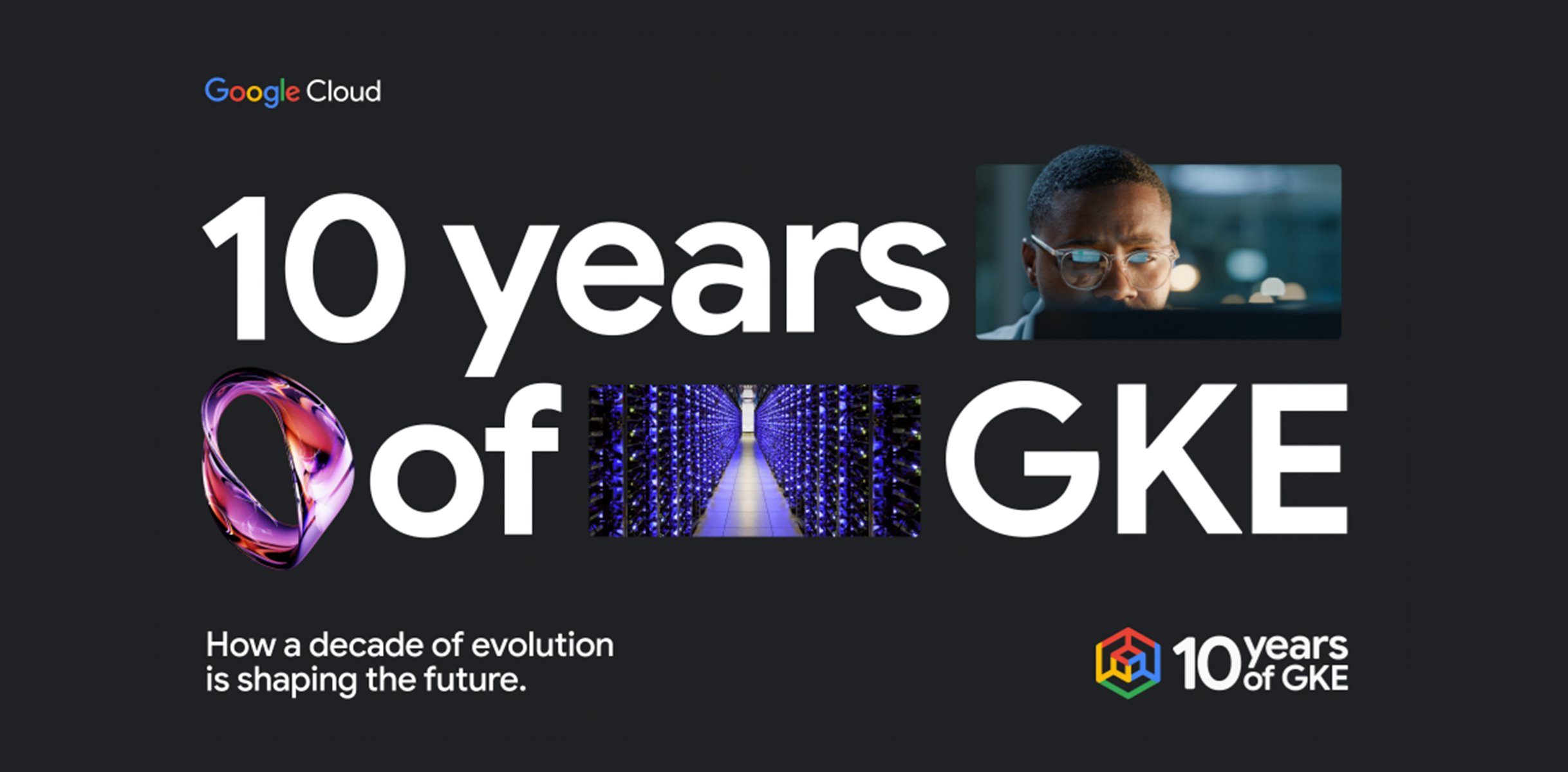Copyright SiliconANGLE News

The race to modernize enterprise infrastructure has a new focal point — container orchestration. Once a behind-the-scenes innovation, it has become the organizing principle of cloud-native computing, managing the complex choreography of distributed systems and data pipelines. Google Kubernetes Engine played a formative role in this journey, helping to shape Kubernetes into the open standard it is today. “Google Kubernetes Engine didn’t just operationalize Kubernetes, it defined how enterprises think about cloud-native reliability and scale,” said Paul Nashawaty, principal analyst with theCUBE Research. “Over the past decade, GKE has evolved from a managed container service into a cornerstone of intelligent automation, integrating policy, observability and AI-driven optimization across hybrid environments.” What’s evolving now is the sophistication of that orchestration layer itself. As cloud environments mature, it’s no longer just about scheduling workloads — it’s about creating adaptive systems that unify automation, observability and governance. Within the Cloud Native Computing Foundation, the rapid ascent of projects such as OpenTelemetry reflects that shift, signaling a future where orchestration operates as both the nervous system and the control plane for modern computing. “As enterprises shift toward agentic, adaptive systems, GKE’s next act will center on orchestration intelligence, automating not only workloads, but decisions,” Nashawaty added. “The convergence of AI, security and platform engineering will make GKE the blueprint for how the control plane itself becomes self-optimizing.” TheCUBE, SiliconANGLE Media’s live broadcast studio, returns to KubeCon + CloudNativeCon NA from November 11–13 to deliver real-time insights and interviews from the show floor. Our coverage explores how Google Cloud and the Kubernetes ecosystem are fueling enterprise AI, driving large-scale infrastructure growth and strengthening the open-source community. (* Disclosure below.) Why GKE’s decade of container orchestration matters Marking a major milestone at this year’s KubeCon event, Google’s GKE celebrates its tenth anniversary as a defining force in container orchestration. Since its 2015 beta, GKE has evolved into a powerhouse supporting 65,000-node clusters, showcasing Google’s commitment to automation, agility and self-healing systems that simplify and accelerate application delivery. “The constant improvements made by GKE over the past 10 years profoundly changed the way we design, deploy and evolve our services,” said Leon Bouwmeester, director of engineering and head of Hue Platform at Signify. “We spend less time on infrastructure management and can focus our efforts on what really matters: the quality of the user experience and the speed of innovation.” As AI and machine learning workloads continue to grow in complexity, the orchestration layer has become a differentiator for cloud providers. Google’s ongoing enhancements to GKE — from Autopilot mode to the Inference Gateway — illustrate how container orchestration now serves as both an efficiency engine and a strategic enabler for intelligent infrastructure. “A model is only valuable until we can put it behind an API and make it available to do something interesting,” Brandon Royal, product manager of AI infrastructure at Google Cloud, told theCUBE. “That’s really where the fun and interesting stuff happens. Inference is becoming more and more critical to businesses that are looking at deploying AI models in their platforms.” Enterprises adopting these architectures are finding that container orchestration provides not just scale, but resilience and predictability. With integrated monitoring and security woven into each release cycle, teams can maintain high performance without compromising governance — a balance increasingly critical in the AI-driven future of cloud computing. “A few years ago, with GKE Autopilot, we came out with this concept of compute classes,” said Jeremy Olmsted-Thompson, principal engineer at Google, during a conversation with theCUBE. “It’s really about creating an abstraction between the platform and the application and abstracting away the categorization of compute that you might need for a given workload.” Looking for more from KubeCon + CloudNativeCon NA 2025? Don’t miss these must-see Google Cloud sessions and booth happenings: Sponsored Keynote: Accelerating Innovation: The Evolution of Kubernetes and the Road Ahead — Jago Macleod, engineering director for Kubernetes and GKE at Google, shares how Kubernetes is evolving to power the next generation of intelligent, scalable workloads. Google Container day. Register here to attend — Don’t miss the latest updates for running containerized workloads on Google Cloud, featuring sessions on GKE and Cloud Run, followed by a networking reception. GKE Turns 10 Lightening Talk (Nov. 12 at 12:30 PM in Google Cloud Booth #200) — Google’s Kaslin Fields and Shubhik Taneja celebrate 10 years of Google Kubernetes Engine, highlighting key innovations in Kubernetes and announcing the winners of the GKE Turns 10 Hackathon. Demo: Building Faster and More Efficient Computer Use Agents in Kubernetes — Google’s Brandon Royal and Mofi Rahman explore how Agent Sandboxes on Google Kubernetes Engine enable secure, scalable execution of agentic AI applications while balancing performance, efficiency and safety. Don’t miss the rest of the Google Cloud sessions and booth happenings at Kubernetes. TheCUBE event livestream Don’t miss theCUBE’s coverage of KubeCon + CloudNativeCon NA from Nov. 11-13. Plus, you can watch theCUBE’s event coverage on-demand after the live event. How to watch theCUBE interviews We offer you various ways to watch theCUBE’s coverage of KubeCon + CloudNativeCon NA, including theCUBE’s dedicated website and YouTube channel. You can also get all the coverage from this year’s events on SiliconANGLE. TheCUBE podcasts SiliconANGLE’s “theCUBE Pod” is available on Apple Podcasts, Spotify and YouTube, which you can enjoy while on the go. During each podcast, SiliconANGLE’s John Furrier and Dave Vellante unpack the biggest trends in enterprise tech — from AI and cloud to regulation and workplace culture — with exclusive context and analysis. SiliconANGLE also produces our weekly “Breaking Analysis” program, where Dave Vellante examines the top stories in enterprise tech, combining insights from theCUBE with spending data from Enterprise Technology Research, available on Apple Podcasts, Spotify and YouTube. Guests During KubeCon + CloudNativeCon NA, theCUBE analysts will talk with industry experts at Google Cloud about the latest advances driving cloud-native architecture, AI infrastructure modernization and the next wave of open-source innovation. Featured guests include Brandon Royal, product manager of AI infrastructure; Mofi Rahman, senior developer relations engineer; and Tim Hockin, Kubernetes cofounder and distinguished software engineer, among others. (* Disclosure: TheCUBE is a paid media partner for the KubeCon + CloudNativeCon NA event. Neither Google Cloud, the premier sponsor of theCUBE’s event coverage, nor other sponsors have editorial control over content on theCUBE or SiliconANGLE.) Image: Google Cloud



